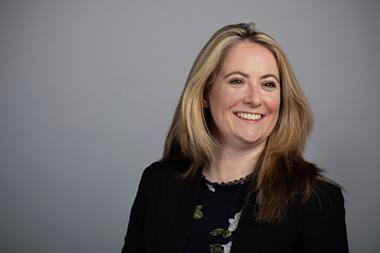Our ‘legal doctor’ Robert Botkai discusses the complexities of the new Register of Overseas Entities

Some readers may own petrol stations through an overseas entity. Others may be looking to do so in the future and so this article makes for important reading.
The Register of Overseas Entities (the ROE regime) was introduced by the Economic Crime (Transparency and Enforcement) Act 2022, expedited by the ongoing crisis in Ukraine.
It came into force in the UK on August 1, 2022; we are currently in a transitional period which will end on January 31, 2023. The ROE regime applies to the whole of the UK, but different land registration requirements apply across England and Wales, Scotland,and Northern Ireland. The land registration requirements mentioned in this article apply only to England and Wales.
The ROE regime will be maintained by Companies House. It operates in a similar vein to the Persons with Significant Control (PSC) regime introduced in 2016 and aims to increase transparency in the ownership of overseas entities (OEs) that own property in the UK, thereby reducing the risk of money laundering.
The obligation to register on the ROE applies to OEs that own UK property, freehold or leasehold (the latter being for a term of more than seven years) in both cases, where the application to register was made on or after January 1, 1999. It also applies where an OE is looking to acquire UK property as well as OEs that have disposed of UK property since February 28, 2022.
By the end of the transitional period on January 31, 2023, OEs which have the relevant interests in UK property, must have registered on the ROE. After the transitional period, OEs cannot register any disposition (eg transfer, grant of a lease for more than seven years) of UK property unless they have completed the registration process at the time of the disposition; there are very limited exceptions.
To register on the ROE, the OE must first identify and confirm its beneficial ownership information. Beneficial owners are any parties with more than 25% ownership or control. The information required about the beneficial owners includes. among other things, their name, date of birth, nationality and the date they became a beneficial owner. The OE must then have that information verified by a ‘relevant person’ which includes independent legal professionals, but it is worth noting that the professional body for solicitors, the Law Society, has issued guidance discouraging English-regulated firms from taking on the verification role. Once verified, the information will need to be submitted to Companies House alongside information about the OE itself such as the name, jurisdiction and registered office address. Companies House will then issue the OE with an overseas entity ID which the Land Registry will require where the OE is disposing of UK property.
Once registered, OEs must comply with annual reporting requirements confirming whether the information held on the ROE is correct or whether any changes have occurred. This is similar to the confirmation statements UK companies file annually at Companies House. It is important to note that where information relating to the entity or its beneficial owners has changed, it must be verified again before submission.
Criminal Offence
Given the objective of the ROE regime in tackling money laundering, serious penalties are attached to non-compliance. A failure to register on the ROE is a criminal offence committed by the OE as well as every officer of the OE. Every day of default attracts a fine of up to £2,500 with potential imprisonment of up to five years as well as restrictions on the OE buying, selling, transferring, leasing or charging property in the UK.
While we are still in the transitional period, it would be advisable to start the registration process should the ROE regime be applicable to you. Our understanding is that there has been a slow take up of the requirement to register. It is known that over 30,000 OEs own property in the UK but relatively few applications have been submitted to register on the ROE.
This is a complex area and we suspect some lack of knowledge among the OEs which is likely to lead to fines and more, until further guidance is published.
I would very much welcome feedback and suggestions on these issues or any areas you would like me to cover in future articles.
rbotkai@wslaw.co.uk
www.wslaw.co.uk



























No comments yet